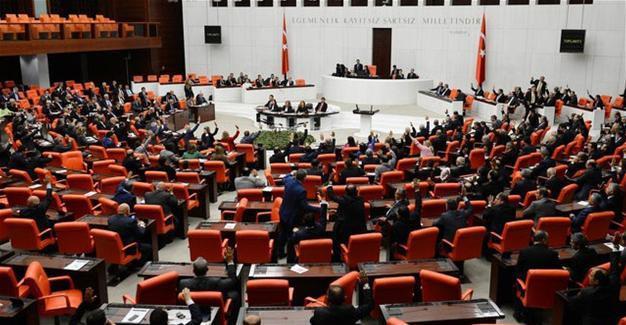Government proposes inter-party commission to work on decree laws
ANKARA
 The Justice and Development Party (AKP) has shared a proposal to establish an inter-party commission with opposition parties to evaluate the criticisms directed at the implementation of decree laws.
The Justice and Development Party (AKP) has shared a proposal to establish an inter-party commission with opposition parties to evaluate the criticisms directed at the implementation of decree laws. The commission, according to the AKP’s proposition, will be composed of five members, one member from each parties which has a group in the parliament, as well as one minister.
Deputy Prime Minister Numan Kurtulmuş announced on Oct. 4 after a cabinet meeting that the governing party was preparing a proposal to form an inter-party commission to address the criticisms AKP had received from opposition parties.
“The government holds the authority to file decrees. What we want to do [by forming a commission] is receive remarks and evaluations from the opposition parties and to ensure this process is implemented with better cooperation,” Kurtulmuş said.
The implementation of decree laws has attracted criticism from opposition parties, mainly the Republican People’s Party (CHP), which claims the AKP is exceeding its authority.
But Kurtulmuş’s announcement of a commission was also met with criticism by the opposition party, with CHP deputy parliamentary leader Özgür Özel saying a commission with just five members was insufficient. “There are many expert commissions working within parliament with more than 20 members. They [the government] cannot tell the world ‘we are seeking to form a consensus about decree laws within parliament’ if they form a titular commission without using existing commissions.”
Özel said the party would agree to work on the decree laws to be passed by the government but the previous decree laws should be discussed within the parliament’s general assembly. “Parliament is the place to discuss previous decree laws; the official commissions of parliament are the place to discuss the decree laws to come, and the Constitutional Court is the authority to decide excesses of power on this issue.”
















